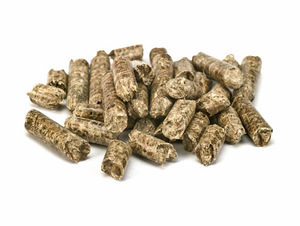FutureMetrics: Wood pellets can replace coal at German plants
By Erin Voegele | March 24, 2022
![]()
FutureMetrics LLC published a white paper in early March that discusses how the German power sector can use wood pellets to extend the operation of coal-fired power plants while reducing dependence on Russian natural gas and reducing carbon dioxide emissions.
The white paper outlines several advantages to replacing coal with wood pellet fuel, including the ability to sustain and create jobs in the fuel supply chain, reduce carbon dioxide emissions by generating on-demand or baseline power, avoid the creation of stranded assets, and lower the net cost of generation.
According to FutureMetrics, nearly 28 percent of Germany’s gross power generation during the first 11 months of 2021 came from coal, with 15.3 percent from natural gas and 11.9 precent from nuclear. The white paper notes that 55 percent of Germany’s current natural gas supply comes from Russia and indicates that all of the country’s nuclear power plants are scheduled to go offline by the end of 2022. Under current policy, Germany’s coal-fired power plants are required to be retired by 2038. That deadline, however, is expected to be moved up to 2030. The white paper explains that the expectation has been that baseload generation will be supplied by natural gas-fired power plants, including new plants that could have ability to switch to green hydrogen.
“Given the cost of retiring coal assets, the current geopolitical situation and its impact on natural gas supply and prices, as well as the fact that sufficient green hydrogen supply is unlikely to be available for a decade or more, it is rational and pragmatic to now explore some scenarios for co-firing pellet fuel at newer coal plants and switching some stations to 100 percent pellet fuel,” said FutureMetrics in the white paper.
According to FutureMetrics, its analysis shows that a switch to pellet fuel at existing power plants can provide a sustainable option for baseload power generation. If advanced pellet fuels that can be stored outside in existing fuel yards are used, the conversion costs would be very low. For lignite fueled plants, FutureMetrics said the modification cost may be zero, adding that the advanced pellet fuel’s energy density would likely be higher than that of the lignite currently used as fuel.
A full copy of the white paper can be downloaded from the FutureMetrics website.
